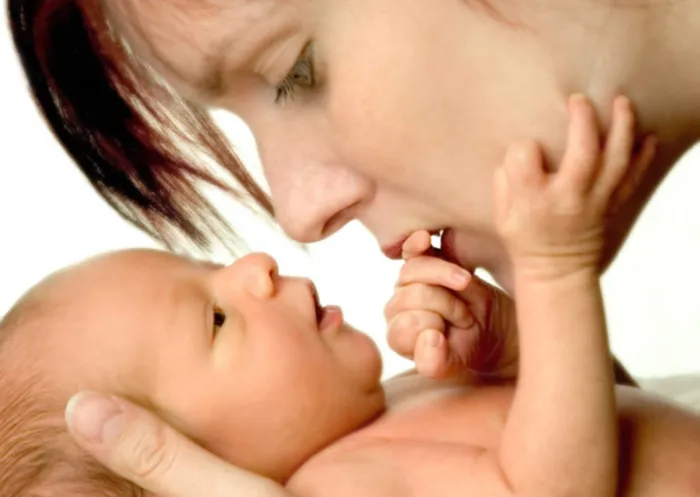Big talk for babies can help language learning

Talking to babies is so important that researchers say it is a major reason why children from disadvantaged backgrounds perform poorly in school. Talking to babies is so important that researchers say it is a major reason why children from disadvantaged backgrounds perform poorly in school.
London - Proud parents have long suspected that behind their baby’s gurgling lies a mind that is keen and sharp.
And now scientists have confirmed that those as young as six months can understand a wide vocabulary, and that if parents speak to them normally it could improve their language skills later on.
A study by psychologists suggests that babies can understand words months before they can say them, confounds traditional scientific thinking that they start to grasp their meaning at about a year old.
It was thought that children of that age could understand elements of the sound of their own native language but not connect the sounds to meanings.
Many psychologists believed word comprehension would not being before the first birthday.
But in fact they understand at a younger age, argue psychologists Elika Bergelson and Daniel Swingley in journal Proceedings of the National Academy of Sciences.
The pair found that when a caregiver repeated a statement such as “where's the apple”, the child's eyes would move to the relevant object on a computer screen.
In a study of 33 youngsters aged six to nine months they found the kids would more their eyes to the correct object even when a clutter of different things were shown on screen.
In tests, the researchers found that the six- to nine-month-old babies fixed their gaze more on the picture that was named than on the other image or images, indicating that they understood that the word was associated with the appropriate object.
It is the first demonstration that children of this age can understand such words.
Dr Swingley said: “There had been a few demonstrations of understanding before, involving words like mommy and daddy.
“Our study is different in looking at more generic words, words that refer to categories.
“I think this study presents a great message to parents: You can talk to your babies and they're going to understand a bit of what you're saying.
“They're not going to give us back witty repartee, but they understand some of it. And the more they know, the more they can build on what they know.”
Dr Bergelson added: “We're testing things that look different every time you see them.
“There's some variety in apples and noses, and 'nose' doesn't just mean your nose; it could mean anybody's nose.
“This is one of the things that makes word learning complicated: words often refer to categories, not just individuals.”
The pair found no improvement in the pattern of learning from six months to nine months, although at 14 months word recognistion jumped dramatically.
Dr Swingley said: “Maybe what is going on with the 14-month olds is they understand the nature of the task as a kind of game and they're playing it.
“Or the dramatic increase in performance at 14 months may be due to aspects of language development we did not measure specifically, including better categorization of the speech signal, or better understanding of syntax.”
Dr Bergelson added: “I think it's surprising in the sense that the kids at this age aren't saying anything, they're not pointing, they're not walking.
“But actually, under the surface, they're trying to put together the things in the world with the words that go with them.” - Daily Mail